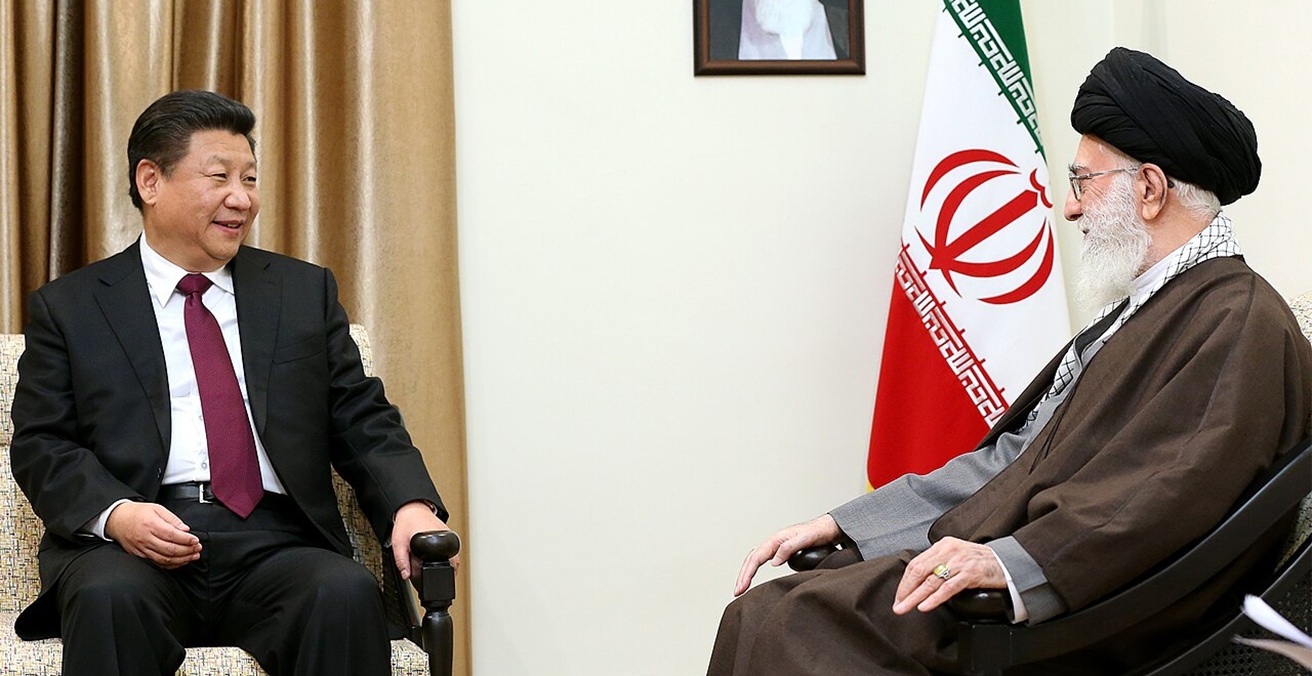With Iran under siege and no real support from its major partners, China’s passive posture is drawing criticism from across the anti-Western camp. The crisis is exposing deep questions about Beijing’s willingness—and capacity—to shape the international system it claims to champion.
In the face of a ruthless and mostly one-sided bombardment by Israel, and now America, Iran’s regime appears to be teetering on the edge. Should it collapse, a critical pillar of the so-called “Axis of Authoritarianism” would fall, delivering a major setback to challengers of the Western-led order. So far, however, no one has come to Iran’s aid in any meaningful way. Russia is, of course, preoccupied with its own protracted war against what it labels the “collective West.” That leaves one major question: what about China?
Beijing has certainly issued stern condemnations of Israeli aggression, language notably stronger than anything it used during Russia’s invasion of Ukraine. It has even advised its citizens in Israel to evacuate. This sparked some speculation that China might finally be readying for action. Yet among many in the anti-Western camp, there was growing recognition that Beijing, for all its rhetoric, was likely stay passive.
The Australian commentator known online as “Syrian Girl,” a vocal supporter of the “Axis of Resistance,” put it succinctly: “China’s been watching the world burn. But this strategy doesn’t work if your friends are the ones burning, sooner or later the fire reaches your shore.”
Other anti-Western propagandists have joined the chorus, urging China to support Iran more concretely. Even some of Beijing’s own propagandists appear to be bucking the party line, openly criticising China’s apparent decision to remain on the sidelines. Some, surprisingly, seem more convinced than Israeli officials of the likelihood of regime change in Iran, and they are excoriating China for “allowing” it to happen.
In practice, there may not be much China can do, even if it wanted to. Some reports indicate the possibility that China is flying a limited quantity of military supplies into Iran. A bolder move that China might have attempted, and perhaps still could, would be to stage fresh military exercises around Taiwan, or otherwise manufacture conditions that complicate US efforts to redeploy forces. Specifically, a demonstration of force might have deterred the early deployment of the USS Nimitz to CENTCOM. Without a second US aircraft carrier in the theatre, Iran would still be in a dire position, but its bargaining leverage might improve marginally. China did send an unusually large number of planes across the Taiwan Strait centre-line between Thursday and Friday, but has yet to follow up on this with more sustained activity. The fact that China let America comfortably redeploy to potentially destroy Iran speaks volumes.
Beyond the immediate implications for the Iran-Israel confrontation, this digital skirmish has triggered broader concerns about China’s international credibility. On one hand, China is widely perceived, by allies and adversaries alike, as leaning towards Iran. Abandoning it now risks triggering a crisis of confidence among Beijing’s global partners, not unlike what Washington faced following its exits from Vietnam and Afghanistan. There are even questions over the viability of the Belt and Road Initiative, if China is perceived as unwilling to back its investments with hard security.
On the other hand, China’s appeal to much of the Global South rests on its vision of a “fairer and more equal” international order; its peaceful rise, framed around non-interference in the domestic affairs of other countries, is central to its narrative. Pro-China commentator Arnaud Bertrand warns that if Beijing begins selectively intervening based on strategic self-interest, such as backing Iran militarily, it would cross into “social imperialism,” engaging in bloc geopolitics, rendering it morally indistinguishable from the United States. That, he argues, would sabotage China’s moral credibility as a leader of an alternative global system.
Critics in the West might observe that China has already shown considerable elasticity with its principles. To this day, Beijing has refused to condemn Russia’s outright violation of Ukrainian sovereignty, even though respect for territorial integrity is ostensibly one of its core foreign policy doctrines. Since China has already changed plenty of positions, why not add one more to the list?
That question strikes at the heart of Western skepticism about Chinese intentions: is Beijing’s lofty rhetoric about building a new and better world order sincere or simply a façade for the pursuit of hegemony under a different flag?
There are certainly reasons for Chinese reticence; at a recent CFR event, USINDOPACOM strategic planner Oriana Skylar Mastro bluntly stated that America has tried various strategies to drag China into such conflicts, but China had failed to take the bait, due to strategic patience. Part of her frustration is because America, by contrast, hasn’t demonstrated such strategic patience, and has embroiled itself into another Middle Eastern war, to the detriment of INDOPACOM.
How far can China’s patience last? Can China really achieve global dominance without getting its hands dirty?
Chinese history offers little precedent for such a path. Few dynasties rose to enduring hegemony without resorting to force.
Perhaps the only exception was the Song Dynasty, which seized power via military coup, quickly reunified the realm, and then largely abstained from offensive warfare. But this choice came at a cost: systemic military weakness. The Song notably failed to recapture modern-day Beijing from the semi-nomadic Liao Dynasty. Instead, it signed a treaty recognising Liao control over the region, and also agreed to pay annual tribute. While some modern scholars have praised this as a model of diplomacy and peaceful coexistence, many Chinese regard it as a national humiliation and a symbol of the Song Dynasty’s broader weakness. Could the People’s Republic of China really pursue such a strategy, particularly when its own interests are at stake? Could they potentially give up on Taiwan, the way that the diplomatic Song Dynasty gave up on Beijing, to uphold their vision for a better international system?
These are the questions asked by not only Beijing’s adversaries in the West, but also its supposed allies, and the rest of the world, all of whom are watching closely for answers. It is time for more clarity on Chinese foreign policy doctrine.
Jersey Lee is founder and co-host of Pacific Polarity, focused on Indo-Pacific geopolitics. He has worked in China as a journalist and on track two diplomacy. He has written on Australian, Chinese and American domestic and foreign policies in international publications including the South China Morning Post, Canberra Times, The Interpreter and UK National Committee on China.
This article is published under a Creative Commons License and may be republished with attribution.





